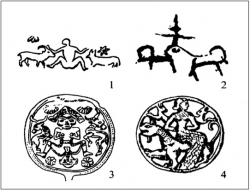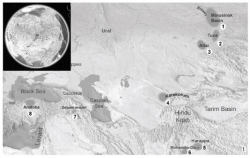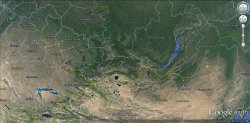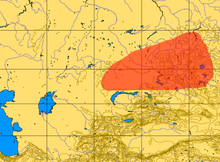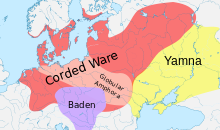1 AGNI, well-kindled, bring the Gods for him who offers holy gifts.
Worship them, Purifier, Priest.
2 Son of Thyself, present, O Sage, our sacrifice to the Gods today.
Sweet to the taste, that they may feast.
3 Dear Narasamsa, sweet of tongue, the giver of oblations, I
Invoke to this our sacrifice.
4 Agni, on thy most easy car, glorified, hither bring the Gods:
Manu appointed thee as Priest.
5 Strew, O ye wise, the sacred grass that drips with oil, in order due,
Where the Immortal is beheld.
6 Thrown open be the Doors Divine, unfailing, that assist the rite,
For sacrifice this day and now.
7 I call the lovely Night and Dawn to seat them on the holy grass
At this our solemn sacrifice.
8 The two Invokers I invite, the wise, divine and sweet of tongue,
To celebrate this our sacrifice.
9 Ila, Sarasvati, Mahi, three Goddesses who bring delight,
Be seated,
peaceful, on the grass.
10 Tvastar I call, the earliest born, the wearer of all forms at will:
May he be ours and curs alone.
11 God, Sovran of the Wood, present this our oblation to the Gods,
And let the giver be renowned.
12 With Svaha. pay the sacrifice to Indra in the offerer's house:
Thither I call the Deities.
http://www.sanskritweb.net/rigveda/griffith.pdf
It is about three "Goddesses" being peaceful , not about one human being not harming others humans or animal, so it is not related to the term Ahimsa exactly as being used by Hinduism currently. Right? Please
Regards
#73

